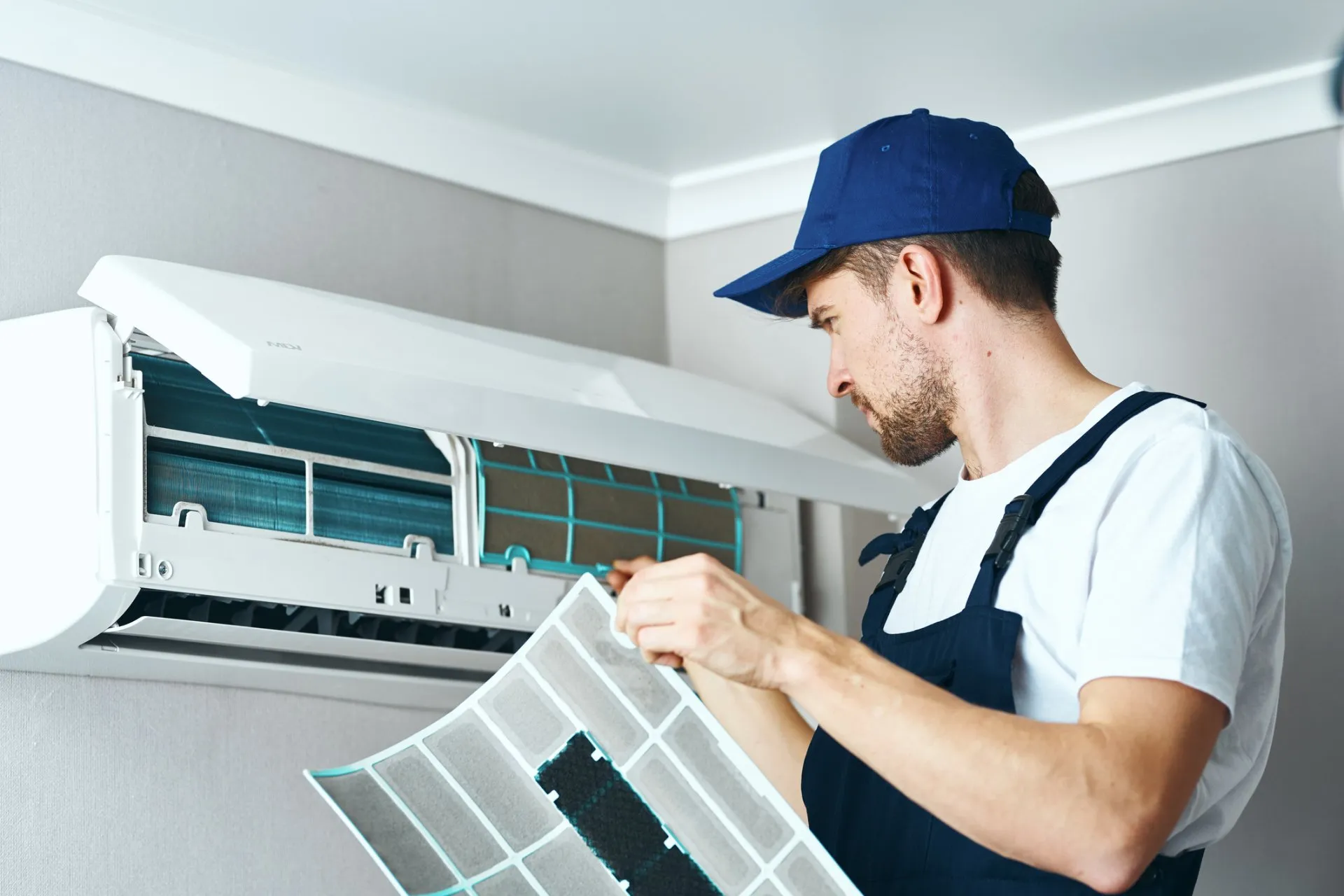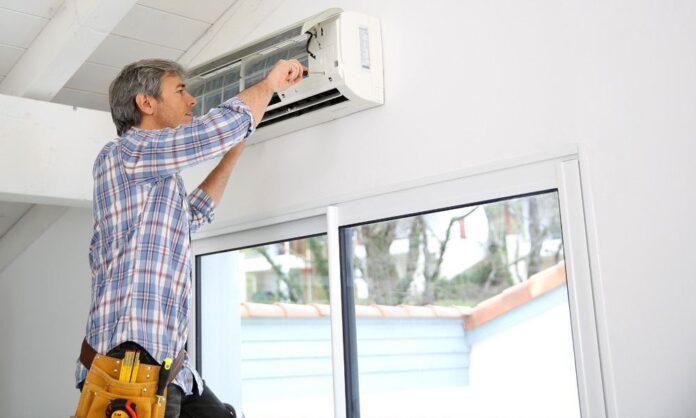Are you considering installing a heat system in your home or commercial building? Heat systems provide several advantages, from improved energy efficiency to lower energy bills. A Heat exchange system can be a great addition to any home or business, from reducing energy costs to improving air quality. Read on to learn more about the benefits of installing a heat system!
Mechanical Ventilation And Heat Recovery Can Save You Energy
Mechanical ventilation and heat recovery systems are becoming increasingly popular as homeowners look to reduce their energy consumption. A heat system can extract warm air from the home while cooler air is drawn in to replace it. It helps to regulate temperatures within the home and minimises the need for heating and cooling. Additionally, mechanical ventilation systems can provide several energy-saving benefits.
When properly installed, a heat system can help to reduce energy bills by up to 60%. Exchanging warm air for cool air or counter-flow ventilation minimises the energy needed to maintain desired temperature levels. It means you can keep your home comfortable without running the air conditioner or heater constantly. As a result, you can save on your energy bills.
In addition to saving money on energy costs, a heat system can help improve indoor air quality by filtering out pollutants, such as dust and pollen. It can be beneficial for those with allergies or asthma as it will help reduce allergens in the air. It also helps to create a healthier environment overall.
Installing a mechanical ventilation system in your home is an easy way to reduce energy costs and improve indoor air quality. It is a cost-effective solution that can make your home more comfortable and energy efficient.
 A Passive House Ventilation System Can Reduce Costs
A Passive House Ventilation System Can Reduce Costs
A Passive house ventilation system provides an efficient way to reduce energy costs and maintain the comfort of your home. This system works by circulating air throughout the home while exchanging the air in the house with fresh air from the outside. The process of exchanging the air is done by a heat system, which allows the incoming air to be pre-warmed or cooled before entering your home. As the air circulates, it is continually filtered, providing clean and fresh air.
By installing a passive house system, you can significantly reduce your heating and cooling costs. The air constantly circulates, reducing the time the heating or cooling system needs to operate. Additionally, because the air exchange is done through a heat system, there is no need to use additional energy to heat or cool the air, further reducing energy costs.
A passive house system also reduces long-term costs as it improves indoor air quality and helps maintain a comfortable temperature all year round. Providing a constant source of fresh and filtered air in the home reduces the need for frequent dusting, vacuuming and other maintenance. It can result in savings on replacement filters and other cleaning supplies over time.
In conclusion, installing a passive ventilation system can significantly reduce energy costs, improve air quality and extend the life of your heating and cooling equipment. These savings will more than offset the installation cost in the long run.
Home Heat Recovery Can Increase Comfort
Home heat recovery systems provide great comfort and convenience to homeowners, particularly during the colder months. Using a heat system, warm air is transferred from inside your home to the outside while cool air is transferred from the outside into your home. It helps to make your home more comfortable by providing consistent temperatures throughout the house.
Additionally, heat systems can reduce energy costs by using less energy to warm or cool the air as it enters and leaves your home. Circulating air throughout your home can reduce the need for supplemental heating and cooling, which can help reduce energy costs. Heat systems are a great way to ensure that your home remains comfortable no matter what the temperature outside is.
Passive House Heat Exchangers Can Reduce Environmental Impact
A passive house heat exchanger, also known as a mechanical ventilation and heat(MVHR) system, is a great way to reduce your home’s environmental impact. This type of system is designed to capture the heat from inside the house and transfer it back into the interior, reducing the energy used for heating. It also improves air quality, as stale indoor air is exhausted outside and replaced with fresh air from outside.
Using a passive heat exchanger can reduce your carbon footprint and help protect the environment. The system captures and recycles up to 90% of the heat from the air that would otherwise be wasted. It means less energy being used to heat your home, which translates into fewer greenhouse gases being released into the atmosphere. You can also save money on energy bills since less energy is needed to maintain comfortable temperatures.
A passive heat exchanger can also reduce the need for other heating systems, such as wood-burning stoves or gas furnaces. It will further reduce your carbon footprint since fossil fuels often power these heating systems.
A passive heat exchanger can significantly reduce your environmental impact and help create a more sustainable home. It is an efficient and cost-effective way to improve air quality and save energy.
A Heat Exchange System For Home Can Extend Your HVAC Equipment’s Life
Installing a heat exchange system for home can extend the life of your HVAC equipment. By allowing air to pass through the heat system before it enters the HVAC unit, dust and other particles are filtered out, resulting in less strain on the unit. The increased efficiency of the team also means that it does not need to work as hard, meaning it can last longer with fewer repairs.
Additionally, these systems can help maintain a constant temperature throughout the house, reducing strain on the HVAC unit and helping it last longer. Finally, because heat systems help regulate humidity levels, they also minimise stress on the system, leading to fewer repairs and longer equipment life. All in all, an exchange system is an excellent investment for extending the life of your HVAC equipment.
A Heat Exchanger Vent Can Improve Air Quality
One of the most significant advantages of installing a heat exchange vent is its ability to improve air quality. A heat exchanger vent removes pollutants and contaminants from the air, leaving it fresher and cleaner. Heat exchangers use mechanical and passive ventilation systems, so they don’t require a fan to operate, making them virtually silent. The automatic vent can take in and exhaust stale air, while the passive ventilation uses natural convection currents to move the air without noise. It means you won’t have to worry about noise pollution or a loud fan in your home.
In addition to removing pollutants from the air, a heat vent can help regulate your home’s temperature and humidity. It prevents mould growth, which can cause health issues and damage to your walls and furniture. Heat exchangers also reduce the dust accumulating in your home, helping prevent allergies and other respiratory problems. Finally, installing a heat vent can help to reduce energy costs by keeping your home cooler in the summer and warmer in the winter.
The House Heat Exchanger Has Quiet Operation
When you install a house heat exchanger in your home, you can rest assured that it will provide a quiet operation. Heat exchangers are designed to be incredibly silent, so you won’t have to worry about loud humming or whirring noises from the system. The air is quietly exchanged between the incoming and outgoing air streams, reducing the sound of the ventilation process. Additionally, the fan motors in the exchanger are specifically designed to be quiet and can be further dampened to ensure that they don’t produce any noise. With a heat system, you can enjoy peace, knowing your system works efficiently and quietly.
Conclusion
Installing a heat system in your home can offer numerous benefits. It can help you save energy, reduce costs, increase comfort, and reduce environmental impact. It can also extend the life of your HVAC equipment, improve air quality, and provide quiet operation. Investing in a heat system is an excellent choice for the environment and your wallet.
Related Websites:
Articles on Blogshunt
Articles on tbablogs
Articles on Blogspeoples
Articles on Allcityforums

